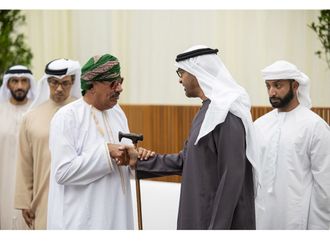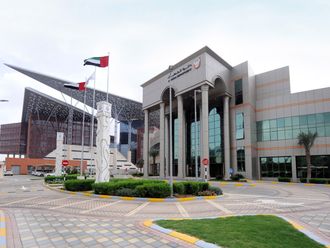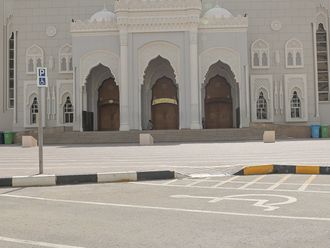continued from part 1
when two or more dominant competing firms sit together and decide not to compete against each other. They co-ordinate prices, supplies, and plan out market sharing mechanism to maximise profits. When competing firms merge to form one large dominant firm, smaller firms are unable to compete as this larger firm normally has a lower per unit operating cost and a much wider market reach.
To some extent this happened vis-à-vis Etisalat. Prior to the UAE's independence, two telephone companies were operating within the territory — one in Abu Dhabi and the other in Dubai. The two operators catered to two different markets, each having a monopoly in their respective markets. Ownership structure also differed, notwithstanding some common shareholders. Neither infringed on the other's market and one could say that immediately after the UAE's independence (when Abu Dhabi and Dubai became one country and one economy) these operators formed some sort of a market sharing mechanism to avoid competition by penetrating into each others markets. In other words, they formed a cartel.
In 1976 the UAE Federal Government nationalised both these companies and merged them into one company Emirtel, thus establishing a monopoly over the entire nation. At that time Emirtel was considered a natural monopoly and the government felt that it had to protect its interest in order for it to provide the nation with the needed telecommunication services.
Nevertheless, recent advances in communication technology, financial accounting and the settlement system have substantially weakened the case for natural monopolies in telecommunications business. With these advances, consumers no longer have to be connected via expensive cabling networks that could afford only one company to operate. Customers could be connected via satellite, or other wireless devices using digital signals more efficiently over the radio spectrum. Whereas earlier, only twisted pair copper cables (with extremely narrow bandwidth) were used for telephone lines, fibre-optic cables (with much broader bandwidth capacity) are used today.
The exchanges too have done away with their electro-mechanical and analogue devices, and are operating digital equipment. Intelligent digital switches not only operate more efficiently, but also require less space and maintenance. All this has helped lower the carrying cost of a telephone call. Mean-while, the new technology has increased capacity at much faster rate and at significantly lower per unit cost. As a result, a glut in capacity has been created which is further pushing down the carrying cost of an additional call.
Another technological factor that is rendering the concept of natural monopolies in the communications industry obsolete, is the capability to convert voice, data, and image into bits. Digital transmissions are changing the way we communicate today. Whereas earlier, cable TV operators could only transmit video signals in one direction, today, the existing technologies allow them to use their existing coaxial, or fibre-optic cable networks to send and receive digital signals. In other words, in addition to sending TV programmes, cable companies are now able to provide a plethora of services; among them being the telephone and the Internet services. The beauty in all this is that the marginal cost for providing additional services over the existing cables to the subscribers is so tiny that the services could be added on free of any charge.
Similarly, digital satellite receivers that are used for viewing TV shows can be used for downloading Internet files directly from the satellite at lightning speeds. In addition to providing only TV shows, these digital satellite transmitters could also carry weather information, stock market quotes, or audio-text in an extremely cost-effective manner.
The digital technology has also changed the way local phone companies could deliver services. Armed with fibre-optic networks and smart switches, the phone companies are able to provide subscribers with video on demand, news on demand, high-speed digital communication links, network management services, video-conferencing, security services, monitoring, and a host of other products. Again, the marginal cost of these additional services is extremely small.
The application of digital technology is also changing the way mobile phones are being used. Today, mobile phones are used for sending and receiving not only voice but also data. Future mobile phones could also be used for Internet surfing, viewing movies, video conferencing and a host of other features previously not available. The Wireless Applica-tion Protocol (WAP) and the General Packet Radio Service (GPRS) are expected to revolutionise the way people would be using mobile communication.
The implication of all this development in technology is that cost continues to decline while capacities and product features continue to expand at an accelerating rate. This is making the environment ripe for cutthroat competition. On the other hand, companies that manage to remain a monopoly love this situation because it means that they can make even fatter profits. This is why, the debate on whether or not to allow monopoly in this market.
In answer to the question, should the UAE's communication market open up to competition given these new technological changes, it is again important to evaluate the costs and benefits of an open market. As indicated earlier, the UAE Government proceeds from Etisalat were nearly Dh3 billion in 1998. Clearly, this is a significant contribution from Etisalat to the federal budget. Any action that may jeopardise this revenue source would adversely impact the federal budget. If the decline in the Federal Government's revenues result in a deficit then, among other options, one, or all three of the following options may be needed to balance the budget:
• Introduce a new income tax regime to tax all businesses and individuals.
• Finance the budget deficit by borrowing.
• Curtail spending on various Federal Government progra-mmes such as health care, education, low-cost housing, provision of water and electricity, etc.
The first of the three choices will have the least damaging effect on the society but it would definitely impact the net disposable income of many businesses and individuals, especially if they are not benefiting from the federal programmes. The last of the three choices will have the most damaging effect on the society's welfare, especially, the national population's welfare as that is the group that benefits most from the existing federal programmes. The middle choice, in the short term, could push up the domestic interest rates and have a crowding out effect on local businesses unless money starts flowing in from foreign sources; either as loans received from foreign countries, or as liquidated assets of the UAE's foreign investments.
If the government resorted to borrowing to meet its deficit requirement, the burden of financing this deficit will no doubt fall on the future generation as any borrowing today means that it has to be repaid sometime in the future. As such, given that the first choice is the most prudent, and a long term solution to the perils of cropping deficit, the Federal Government may eventually opt for introducing an income tax regime. This, however, may not be to the liking of many proponents of free competition.
Another argument favouring Etisalat's monopoly is the extent to which jobs are offered to
Etisalat: advantages, disadvantages of open market - 2
Etisalat: advantages, disadvantages of open market - 2










